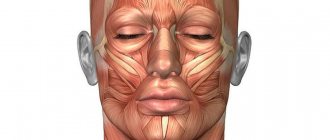Students are different, and not everyone is easy to approach. Especially to teenagers who are called “difficult”. Experiencing the turbulence of puberty, they can be aggressive, sabotage classes and infuriate even angelic teachers. Together with a psychologist, we figured out whether “difficult” teenagers really exist and what to do if you teach them.
Students are different, and not everyone is easy to approach. Especially to teenagers who are called “difficult”. Experiencing the turbulence of puberty, they can be aggressive, sabotage classes and infuriate even angelic teachers. Together with a psychologist, we figured out whether “difficult” teenagers really exist and what to do if you teach them.
Psychologist Inna Illarionova: “In the case of “difficult” students, there is usually an intra-family conflict. And in most cases, parents deny problems on their part, but the child can be quite adequate, and working with him makes sense. The tutor is not able to change the family situation, but he can observe and note the dynamics - whether there are positive results from the lessons or not. If there is, work can continue. If you have good contact with your parents, you can recommend a psychologist to them. The ideal case is when a tutor works with a child, and a psychologist works with parents. If the case is very serious - both the parents and the child deny the problem - it is better to refuse such clients. You won’t earn all the money.”
Let’s say our teenager is not a “severe case”, there are positive dynamics. But working with him is unbearable. Let's find out what to do using specific examples.
Problem: Shows aggression and conflicts
Younger children tend to respect authority and try their best to please adults, but teenagers may exhibit “character.” Rioting, pink hair and slamming doors are normal and even expected reactions. By adolescence, a person’s emotional system is already fully formed, but the prefrontal cortex, which is responsible for rationality, is not so well developed. Add hormones and socialization difficulties and you get a typical teenager.
But, as the psychologist notes, the child’s anger towards the tutor may not be irrational at all, but quite fair. After all, classes are, as a rule, the decision of the parents.
Advice to a tutor
: in a situation where classes have been imposed on a teenager, look for a special approach. Find out what interests him and approach him from this side - you can learn English words by translating songs of your favorite groups, for example. Forget about the parents' request for a while and find out about the child's own requests.
How to behave with a child who has entered a “difficult age”?
Attention, tact and patience are the key words that should guide father and mother. Remember: repressive measures, shouting and coercion will have the opposite effect. You may lose all contact with your child, and the consequences of this can be dire.
The teenager should be the center of your attention, but it should not be intrusive. Tactfully monitor your child’s circle of acquaintances and his interests. Communicate as much as possible, and this communication should be pleasant for both of you.
Don’t read lectures, don’t quibble over trifles, don’t impose your way of thinking and lifestyle.
At the same time, strictly enforce the rules of your home and social life. And be consistent and firm. Your reward and punishment system must be thoughtful and effective. Maintain your authority and demand respect.
Weigh your every word and action towards your teenager. Allow him to make his own decisions where possible. Do not discuss your child’s misdeeds and mistakes in the presence of strangers, even if they are your relatives. Refuse excessive guardianship, however, excessive freedom is categorically not welcomed.
Problem: doesn't want to study
“If the tutor is chosen consciously, if the teenager chose him himself, such problems cannot arise,” says the psychologist. Difficulties arise if the child has not even thought about studying, but the parents hire him tutors and insist: “Just study, just do it, your task is to do it!” In this case, the parents decide too much for the child.
Advice to a tutor
: Try to explain to parents that they should not ignore the child’s needs. Deciding for a teenager whether to study with a tutor or not is a waste of time, nerves and money. And in the process of discussion, you can bring the child to the understanding that he really needs it.
Blog
— Honest SWOT analysis.
In raising a teenager, it is extremely important to be objective. Strengths (even if they are almost invisible behind the abundance of destructive behavior) should be noticed, the child should be complimented, and thanked if he has done something well. Negative moments need to be noted and your finger on the pulse. Praise will not make a teenager proud, but its absence can lead to problems with self-esteem, because for now he continues to get an idea of himself through mom and dad. It is important to correct weak qualities by positively reinforcing the child’s opinion of himself, focusing his attention on strengths and successes.
You need to talk with a teenager about his disadvantages very carefully so as not to offend or traumatize him, causing him to withdraw into himself and distance himself from his parents for a long time.
How not to cause harm?
- When talking about any problem, choose a moment when the child is in a good or normal mood.
- Use “I messages”, talk only about your experiences in the context of the current situation, instead of the “you” form of address, which quickly turns any constructive dialogue into an accusatory one.
— Offer specific help. For example, if your son or daughter is prone to obesity, there is no need to make comments, shame or irony on this topic. Indicate that you are willing to pay for a gym membership and keep company if necessary.
— Establishing partnerships.
Communication with a teenager should occur on equal terms. When his opinion is as important as the parent’s, it becomes easier to agree on anything. Pressure automatically disappears from communication, and respect for the boundaries of the other appears. This is always felt, and this is exactly what a growing family member, who is still developing as a person, needs now.
For example, if you are going on vacation, the choice of country and vacation program can be discussed with your son or daughter. And not just listen and do it your own way, but really take into account the child’s opinion and suggestions. This will greatly strengthen his trust in his parent. One of the bonuses of a trusting relationship may be a more adequate and positive attitude of the teenager towards parental wishes regarding him.
— Receiving feedback.
A teenager, even a rebellious and aggressive one, knows exactly what is unpleasant and traumatic for him in his relationship with his parents, and what is comfortable and resourceful. You can ask your child about how he lives at home, what he dreams about, what he worries about, etc. This needs to be done carefully, without pressure, and regularly enough so that your son or daughter develops the habit of talking about their feelings, and does not want to go into isolation, feeling fear or resentment from such questions from their parents. By receiving feedback from a child, many acute situations can be avoided.
Problem: Constantly distracted
Inattention is usually a clear sign of boredom or reluctance to study. Here we return to the points about “special approach” and “talk to parents.” But there are also exception situations when a child has adequate motivation, but cannot cope with the task and quickly gets tired. Here, as the psychologist notes, a consultation with a neurologist, psychiatrist or neuropsychologist is needed.
In adolescence, there are often onsets of mental illness, and sometimes attention deficit disorder is to blame - all this must be taken into account. Just as the fact that adolescence is accompanied by natural physiological changes and hormonal explosions is a temporary phenomenon, you just need to reduce the duration and frequency of exercise for a certain period.
Advice to a tutor
: often classes are interfered with by the teenager’s personal experiences: the dislike of a cool classmate, the divorce of parents. All this makes it difficult to concentrate. In such a situation, it is better to talk to the child: “Listen, I see that something is wrong with you today. Let's shorten the lesson time."
By paying attention, you demonstrate understanding and build trust. There is a chance that after such a conversation the teenager will relax and get back to work.
What to do with difficult teenagers and why punishment is not the answer
“Our six-year-old child is very jealous of our cat. As soon as I pet him, he starts hitting the animal,” the boy’s mother complains. Parents are looking to place a pet: a cat and a son do not get along in the same family. However, experts sound the alarm; in such situations it is worth paying attention to the psychological state of the child. If we do not deal with this issue, then, experts warn, we will reap the consequences: deviant teenagers sometimes commit terrible acts. The recent tragic events in Russian schools, when young men attacked schoolchildren, are proof of this. Psychotherapists note: it is extremely important to work with such behavior of the child, and not write him down as a criminal from childhood.
As Nina Asanova, candidate of medical sciences, psychiatrist, psychoanalyst, dean of the faculty of psychoanalysis at the Moscow Institute of Psychoanalysis, member of the International Association of Forensic Psychotherapy, member of the board of trustees of the Chance Foundation, notes, parents, teachers, and society often simply do not hear the first bells that inform us about problems that are already emerging. Antisocial behavior of a child is cruelty to animals, violence against younger or weaker peers, theft, vandalism, damage to other people's property, petty hooliganism, drugs. Then more dangerous behavior begins - antisocial behavior: running away from home, lying, skipping school, extortion, profanity, obscene writing on the walls. And finally, self-destructive behavior: smoking, substance abuse, drug addiction, vein opening, alcoholism, suicide.
But often parents don’t have time, and it’s easier for the teacher to move the bully to the back desk so as not to disturb the others.
Such children become outcasts from society. Society does not sympathize with the child and does not want to help. At the same time, there are government programs to help such children abroad. They understand that it is necessary to identify the beginnings of deviant behavior from an early age, from 7 years old. Moreover, psychoanalytic treatment of a child differs from the same assistance to adults.
And then adolescence begins, during which everything escalates. “This is the age between childhood and adulthood, and this is a normative crisis situation. In adolescence, many mental processes are “not completed” in the sense that they go through a stage of reorganization, re-examination and rethinking, emphasizes Nina Asanova. “Adolescence is a second chance.” And, the expert believes, development can take different paths. Either these processes will end positively, or the child will develop a state of chronic mental disorder, or, in cases of antisocial behavior, the formation of a dissocial personality disorder.”
Why is it so difficult with teenagers: 10 important points from Katerina Murashova
Deviant teenagers are victims of adults’ indifference, says Gelena Ivanova, psychoanalytic psychotherapist, president of the Chance charity foundation, deviantologist. The specialist has been working with convicted teenagers for several years. “But 70 percent of these children were not even registered with the commission on juvenile affairs. These were ordinary “troubled teenagers,” as we call them. They skipped school, smoked, behaved like hooligans... but it got to the point where they committed crimes,” notes the specialist. But teenagers have a flexible psyche, and you can and should work with them!
At the same time, abroad, says Gelena Ivanova, psychotherapists and psychoanalysts work with such teenagers. The goal there is not to punish the child, but to help him. “Our state spends about 1 million rubles a year on maintaining a child in a colony, and accompanying a teenager with the work of a psychotherapist costs 130 thousand rubles a year,” notes the expert. For example, in the USA, human capital is estimated at $1 million, that is, if a teenager was saved from murder, then not only was this young man saved and the potential victim was saved, but also $1 million of the country’s budget was saved. And working with difficult teenagers is considered much less taxing.
British experience is shared by David Millar, a clinical psychologist, psychotherapist, professor at the Department of Psychoanalytic Research at the University of Essex, and a member of the International Association of Forensic Psychotherapy. They are trying to save the child from legal proceedings. There are social services in the country; specialists conduct psychotherapeutic work with deviant teenagers. If the family is dysfunctional, the teenager goes under the care of a foster family. Compulsory psychiatric treatment may be prescribed. Finally, violations may result in a fine or mandatory labor. Here they believe that it is better for a hooligan to sweep up yards and work for the good of society (psychotherapy is still going on in parallel with the child) than to sit in prison. There is also a mediation technique - the offender meets with the victim, and specialist mediators try to establish a dialogue, help one side forgive the offender, and the other to receive such forgiveness and work it off (again, fines or work). Well, if the crime is serious and a trial is pending, then juvenile justice works: the case is examined not by one judge, but also by social service employees and representatives of the local community. It is important that such proceedings are closed and secret. A teenager under the age of 18 cannot be sentenced.
In Italy, imprisonment is considered a very last resort when there is no alternative. Specialists work with the teenager; during this work, he is required to undergo therapeutic treatment or detoxification, participate in an educational program, and work with specialists. This is told by Bruna Marzi, psychoanalyst, Doctor of Psychology, current member of the International Micropsychoanalytic Society, forensic expert. A youth who breaks the law may receive probation, and the purpose of this punishment is to help the minor, promote his participation in society, and support the child in developing positive behavior. Judges may order psychological counseling.
Why your sullen teenager won't talk to you. 4 reasons
In the United States, the first juvenile court was created on July 2, 1899, when a strong increase in juvenile crime was noticed in the country. In 1974, Congress passed the Juvenile Justice and Delinquency Prevention Act, which was updated in 2002. The law provides for work on the rehabilitation of minors. The Office of Juvenile Justice and Delinquency Prevention was established to support federal, state, and local juvenile delinquency prevention efforts.
Rehabilitation is the main goal of this justice system. With some exceptions, most states in the United States define a delinquency as the commission of a criminal act by a child under 18 years of age. Most US states also allow youth to remain under juvenile court supervision until age 21.
Even though the number of child prisoners in the United States is declining, there are still 80 juvenile prisons. But in California, Texas, Missouri and New York, such prisons are a thing of the past. There, work is concentrated in local juvenile detention centers and local programs for social and psychological rehabilitation are developed.
In general, in the United States, experts explain, electronic monitoring, accompaniment of minors and social counseling are developing. Educational and psychotherapeutic programs are provided in the community.
Juvenile courts, as in Europe, are closed to members of the public and records are often confidential, protecting children from the burden of their crimes later in life.
Here is Florida's experience. There is an Office of Prevention and Victim Assistance, which aims to provide early intervention to reduce the likelihood of arrest and recidivism among juveniles. Various programs are being developed. For example, "Children in Need" - for those who have not yet committed an offense, "Practical Academic Training Center for Girls". Everything is aimed at preventing children from coming into contact with the justice system. The Office maintains partnerships with communities, faith-based organizations and volunteers.
Accompanying psychotherapists assess the risks - whether it is possible to leave the teenage offender at home or whether it is better for him to live in a special Center. A juvenile officer meets with the youth and his family to assess the risk to public safety. After this, the recommendations are transmitted to the prosecutor.
If a teenager needs to be detained, he is sent to a Temporary Detention Center and remains there depending on the severity of the offense.
And the prosecutor decides whether to initiate a case. If an investigation is eventually completed and the case goes to trial, then if the teenager is found not guilty, he will be placed under community supervision. The Youth Officer meets with the young offender and together they develop a Youth Success Plan (YES Plan). After this, the minor is released from the detention center.
If a teenager is found guilty, he is sent to a special closed institution.
Young people who remain free can engage in community service or visit, for example, rehabs - rehabilitation centers for those who have taken drugs.
“We believe that a specialized state service like the Ministry of Emergency Situations should work with such children and treat them. Closed boarding schools are needed, but they should be led not by military personnel, but by psychotherapists,” says Gelena Ivanova. In the meantime, until such work is established in our country, potentially successful, normal teenagers, but with psychological trauma, unsocialized, will continue to get into trouble without the attention of adults. For example, a boy dreamed of entering a military school - and would have done so, but his antisocial behavior and psychological problems brought the young man to probation. Another teenager in the 11th grade, 4 months before the Unified State Exam, lost his temper and dropped out of school, the reason being a conflict with the teacher. And again a broken psyche and fate that needs to be corrected, if still possible.
How to spot teenage depression early. 5 important signs
For now, experts worry, Russian families do not have the opportunity to receive the help they need. Not every teenager is ready to agree to treatment in a free state psychiatric clinic - this threatens not only a drill regime, but also registration. At the same time, without official treatment you will not be able to get the necessary medications. Another option – private psychotherapeutic assistance – is comfortable and highly effective, but not everyone can afford it. But at the same time, reminds Gelena Ivanova, often her clients are deviant teenagers from poor families, who sometimes do not have enough money even for food. And this is Moscow! What can we say about the regions, the specialist complains. Very often, the psychotherapist emphasizes, deviant behavior is observed in children from families with a reduced level of income, from single-parent families, from families where one of the parents suffers from alcoholism, and so on. Such families simply do not have money for paid help. Vicious circle. So far in Russia there are programs of charitable foundations that are free, but these opportunities are not enough for the whole country. Therefore, experts note, it is important to extend the practice of psychotherapeutic work with deviant youth throughout Russia at the state level. These children, and therefore the whole society, will be saved not by colonies for juvenile delinquents, but by the prevention of crimes among them. Such a “difficult child” needs help, and it must be provided on time.
Recently, Russian experts developed a program for the decriminalization of the teenage environment in the Russian Federation, which will be presented to the relevant departments. By the way, the experts’ proposals will also be studied by the government commission on affairs of minors and the protection of their rights, headed by Deputy Chairman of the Government of the Russian Federation Olga Golodets. They believe that it is very important to take into account the opinion of professionals in this field.
In order not to miss anything useful and interesting about children's entertainment, development and psychology, subscribe to our channel on Telegram. Just 1-2 posts a day.
More interesting:
10 facts about biorhythms that will help you better understand teenagers
Psychologist Katerina Murashova - about an important educational technique that suits everyone
How to teach your child empathy: 5 simple steps instead of an imposed “sorry”
Problem: sabotages, disrupts classes
Sometimes children do not come to classes and play truant. Or they are regularly late. They may offer the tutor money for a lesson that will not happen, or they may be demonstratively silent for the entire lesson. The assortment is great.
Advice to a tutor
: Make appointments at a time convenient for your child. Sabotage is, as a rule, a rebellion - proof of one's importance. When communicating with a teenager, do not forget to show that you see in him a full-fledged person, and not a passive object on whom something was imposed.
What to read
In order to establish communication with a child, show understanding and earn trust, it would be useful to learn more about the specifics of working with him. In the book Summerhill - Education with Freedom, Alexander Neill, the creator of the legendary children's self-government school, talks about “difficult children” who eventually turn into difficult adults. The book gives an excellent psychological overview and analysis of the phenomenon.
Knowledge of the purely physiological characteristics of growing children will also help to find contact with teenagers. In the book “The Teenage Brain. Life-saving recommendations from a neuroscientist for parents of teenagers,” the neuroscientist answers questions from parents, children and teachers, talks about the characteristics of the adolescent brain and gives practical advice on how to support children in their not-so-pleasant years.
In what cases will your child need specialist help?
You should act immediately if a teenager’s actions can cause harm to himself or others:
- Cruelty and violence towards others,
- refusal to eat ,
- violent, aggressive behavior,
- communication with a suspicious company,
- refusal to attend school,
- suicidal feelings,
- alcohol or drug use,
- early entry into sexual activity.
The specialist will carefully examine the child’s behavior at school and at home, and conduct medical examinations to identify possible physiological causes of behavioral disturbances. A professional can give you specific recommendations that can identify and eliminate many behavioral problems. Your child may need to undergo treatment.
How and what to talk to parents about?
School psychologists, like teachers, communicate not only with children, but also with their parents. Moreover, conversations with the older generation are much more difficult than with teenagers.
Conversations with parents of at-risk adolescents should cover the same thematic areas as conversations with the children themselves. But, of course, building a dialogue should be different. It is very difficult to talk with parents who initially boast of their own “know-it-all” and are hostile. Overcoming such “defense” is extremely difficult, and there is no single template for conversation. We need to try to find topics that are close to parents, and not let them understand that they are to blame for something, that they missed something in their upbringing.
It’s even more difficult to communicate with parents who come “for show.” This type of adult is characterized by the following:
- express agreement with each statement;
- they nod vigorously and sigh;
- ask rhetorical questions with extreme concern on their face;
- can take notes on what was said;
- do not interrupt or argue.
For such parents, the child is a priori “bad,” and the essence of their behavior is expressed in the following: “tell me, teach me what to do.” If the conversation is carried out together with the child, then such parents can give him a symbolic slap on the head.
The problem is that as soon as they leave the school threshold, their behavior changes. These people do not take psychologists seriously and simply demonstrate the necessary reaction in order to be left behind.
Thus, the specialist's task is to ensure that parents take him seriously, do not see him as an enemy and support his efforts. There is no need to explain to adults “what is good and what is not”; they themselves know this very well.
What is it common to talk to teenagers about? List of sample topics
Preventive conversations with adolescents at risk should cover the following topics:
- empathy;
- self-esteem;
- friendship;
- building relationships with people around you;
- the influence of one personality on another;
- motivation of actions;
- finding a common language with parents;
- organization of leisure;
- interest in learning;
- failures and the ability to cope with them;
- harm of doping;
- healthy lifestyle;
- compliance with social norms and rules;
- personal, family and universal values;
- stress, depression.
Of course, each of the topics should affect teenagers. That is, to be close and understandable to them. And to do this, one should take into account local characteristics and general trends and fashion.
For example, the topic about the dangers of doping. What is it common to talk about? The vast majority of experts talk about the dangers of smoking and drinking alcohol, briefly touching on issues related to substance abuse.
But how many children smoke, drink alcohol, or get involved with toxic substances? This doesn’t even occur to most of them, because they spend their time mainly on the Internet and at McDonald’s, and not in the gateways, as was the case at the end of the last century. But it’s enough to go outside and pass fast food establishments popular with teenagers to notice that almost all of them drink energy drinks and smoke “vapes.” And these are dopings, and much more terrible than drugs, cigarettes or alcohol, since there are no problems with their acquisition.
Such nuances must be taken into account when preparing a conversation with at-risk adolescents.











